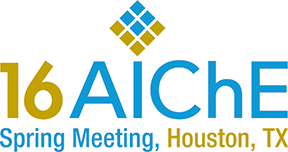

In Failure to Learn: the BP Texas City Refinery Disaster,1 the author, Andrew Hopkins, explores the concept of Mindful Leadership and the importance of senior managers using auditing as a tool to identify “unrecognized problems that may be lurking beneath the surface” (Hopkins, p. 114). He also goes on to state that auditors “will not set out to sample the organization. Rather, they will use their expert knowledge to zero in on areas where things might be going wrong” (Hopkins, p. 115).
Building on this concept, the authors of this paper will look beyond traditional OSHA PSM and USEPA RMP regulatory compliance auditing to explore the value of drilling down around the process safety lifecycle; locating the pain points; and releasing the pressure on the system. Compliance auditing has historically provided a “check-the-box” approach to meet regulatory requirements imposed by OSHA and USEPA. Today’s auditors need to determine how to systematically identify the root cause of the “pain points” that will foster conversations around vibrant integrated process safety management systems and practices in place.
Industry standards, such as ANSI/ISA 84.00.01 and IEC 61511, continue to drive the evolution of functional safety and the requirements to demonstrate that companies have reduced risk to a tolerable level. This lifecycle approach actually quantifies the value of an integrated process safety program as it applies to the integrity of all of the independent protection layers (IPLs). There is a growing realization that companies must have a healthy Process Safety Management Program in place to meet the full intent of IEC 61511 and ISA84.91.
The authors will present a drill down audit methodology that focuses on the organizational interfaces and the related management system procedures and practices in place to meet the defined safety integrity requirements of both the instrumented and non-instrumented IPLs. This method of meticulous verification exposes the issues and the sources of the “pain” digging deep into the process safety information, process hazard analysis, operating procedures, training, mechanical integrity, and governance processes. When exposed in this manner, there is a trail that then offers a basis for revising the work flow to “release the pressure” and accomplish the risk management objectives going forward.
1Andrew Hopkins, Failure to Learn: the BP Texas City Refinery Disaster, Sydney: CCH Australia Limited, 2008.
